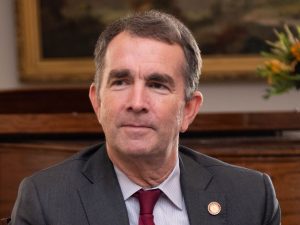
RICHMOND, Va. (AP) — Outgoing Democratic Virginia Gov. Ralph Northam laid out a proposal Thursday for a $158 billion two-year state budget that would boost Virginia’s reserves, give teachers and other state workers pay raises, and institute a variety of tax cuts.
The spending blueprint Northam outlined to members of the legislature’s money committees is possible thanks to record revenue growth that is projected to continue growing. The governor made the case that his budget plan was progressive, fiscally responsible and would set up incoming Republican Gov.-elect Glenn Youngkin for success.
“The budget I propose to you today will leave a roadmap to continue the strong economic success that we are seeing. We will keep making the investments that Virginia needs, and we will keep putting resources into supporting Virginians who need it,” Northam said in prepared remarks.
Northam, who like all Virginia governors was prohibited from serving a second consecutive term, will leave office in January.
Northam spokesperson Alena Yarmosky said Northam and Youngkin have met on a few occasions but did not discuss the specifics of the budget proposal, which contains several key campaign pledges of Youngkin’s.
The Democrat’s plan includes a 5% pay raise for teachers in both years of the budget. State employees would see the same pay increases.
It also spends $223 million on increased funding for pay for law enforcement officials, to address both starting pay and pay compression over time.
Northam’s proposal calls for $2.1 billion in tax policy adjustments, approximately $419 million of which would be ongoing.
He wants to eliminate the state’s 1.5% share of the sales tax on groceries. While Northam campaigned on the issue in 2017, he has not prioritized it since. Ending the tax was a key campaign pledge of Youngkin’s.
Northam is also proposing that the state give one-time “economic growth” tax rebates of $250 for individuals and $500 for married couples; make up to 15% of the federal earned income-tax credit refundable for eligible families; and end the accelerated sales tax payments for retailers.
His administration said the tax relief proposals were intended to benefit lower-income workers who were disproportionately affected during the pandemic.



